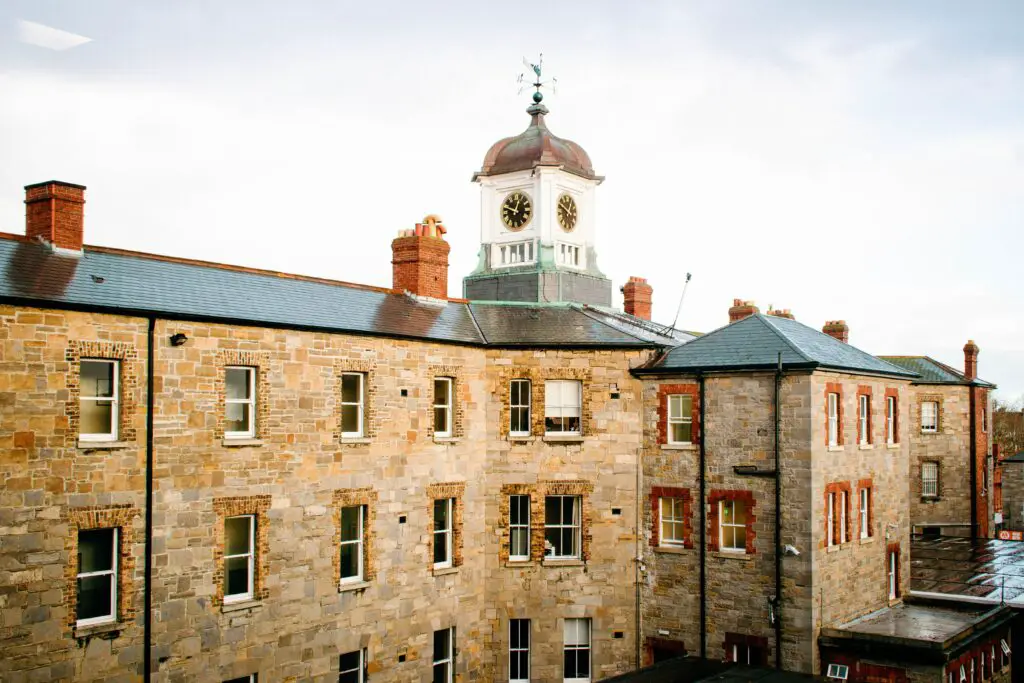Cambridge is a historic university city in the East of England, located about 50 miles north of London. It is home to the prestigious University of Cambridge, which was founded in 1209 and is one of the oldest and most prestigious universities in the world. The question is whether ‘Is Cambridge An Ivy League School?’.

To answer this question, we need to understand what Ivy League schools are and how they are defined. Ivy League is a group of eight prestigious universities in the United States that are recognized for their academic excellence, selectivity, and rich history.
Is Cambridge An Ivy League School?
While Cambridge is a renowned and prestigious university, it is not an Ivy League school. This is because the term “Ivy League” only refers to the eight aforementioned universities in the United States and not to any other institution, regardless of its reputation or academic standing.
All you need to know about Cambridge University
Cambridge University is located in the United Kingdom and is one of the oldest and most prestigious universities in the world. It was founded in 1209 and is composed of 31 colleges and six schools. It is consistently ranked among the top universities in the world and has produced many notable alumni, including Isaac Newton, Charles Darwin, and Stephen Hawking.
Apart from its academic excellence, Cambridge is known for its rich history, stunning architecture, and vibrant culture. The city is home to many historic landmarks, including the iconic King’s College Chapel, the Bridge of Sighs, and the Cambridge University Library. The city’s mediaeval streets, cobbled lanes, and picturesque river make it a popular destination for tourists from all over the world.
Cambridge University is a world class institution
Cambridge is a hub of innovation and entrepreneurship, with many high-tech companies and startups based in and around the city. The university has a strong tradition of research and innovation, and many groundbreaking discoveries and inventions have originated from Cambridge, including the structure of DNA, the development of the first computer, and the discovery of the Higgs boson particle.
In addition to its academic and scientific achievements, Cambridge is also a cultural and social hub, with a thriving arts scene, numerous museums, galleries, and theatres, and a diverse and multicultural community. The city hosts many cultural events throughout the year, including the Cambridge Folk Festival, the Cambridge Literary Festival, and the Cambridge Science Festival.
Cambridge is a historic and prestigious university city that offers a unique blend of academic excellence, cultural richness, and innovation. Its world-renowned university, stunning architecture, and vibrant culture make it a popular destination for students, tourists, and professionals alike.
Who qualifies as an ivy league school?
The Ivy League is an athletic conference comprising eight private institutions of higher education located in the northeastern region of the United States. The eight schools that make up the Ivy League are:
- Brown University (Providence, Rhode Island)
- Columbia University (New York City, New York)
- Cornell University (Ithaca, New York)
- Dartmouth College (Hanover, New Hampshire)
- Harvard University (Cambridge, Massachusetts)
- University of Pennsylvania (Philadelphia, Pennsylvania)
- Princeton University (Princeton, New Jersey)
- Yale University (New Haven, Connecticut)
These universities are known for their academic excellence, selective admissions processes, and rich histories. They are often regarded as some of the most prestigious and elite institutions of higher education in the United States.
Difference between ivy league school and Cambridge University
While there are similarities between the Ivy League schools and Cambridge University, there are also some key differences. One major difference is their locations and cultural backgrounds. The Ivy League schools are all located in the United States and have a strong American cultural influence, whereas Cambridge University is located in England and has a strong British cultural influence.
Another difference is their academic structures. The Ivy League schools are all private institutions with a strong focus on undergraduate education, while Cambridge University is a public research university with a strong emphasis on graduate education and research.
There are also some differences in the admissions processes and criteria for these institutions. While all of these schools have competitive admission standards, the Ivy League schools place a strong emphasis on extracurricular activities and personal essays, while Cambridge University places more emphasis on academic achievement and potential.
In conclusion, Cambridge is not an Ivy League school, but it is a highly respected and esteemed university that has made significant contributions to academia and society. It is important to understand the distinctions between different universities and their respective reputations and accomplishments to make informed decisions about education and career paths.
FAQs
- What is the difference between Cambridge and the Ivy League schools?
A: Cambridge is a university located in the United Kingdom, while the Ivy League schools are located in the United States. Additionally, the Ivy League schools are all private institutions, while Cambridge is a public university.
- Are there any similarities between Cambridge and the Ivy League schools?
A: Both Cambridge and the Ivy League schools are known for their academic excellence, selective admissions processes, and rich histories. Additionally, they are all highly regarded institutions of higher education that attract students from all over the world.
- Can students from Cambridge study at Ivy League schools?
A: Yes, students from Cambridge can study at Ivy League schools and vice versa. Many universities around the world have exchange programs and collaborations that allow students to study abroad and experience different academic environments.

